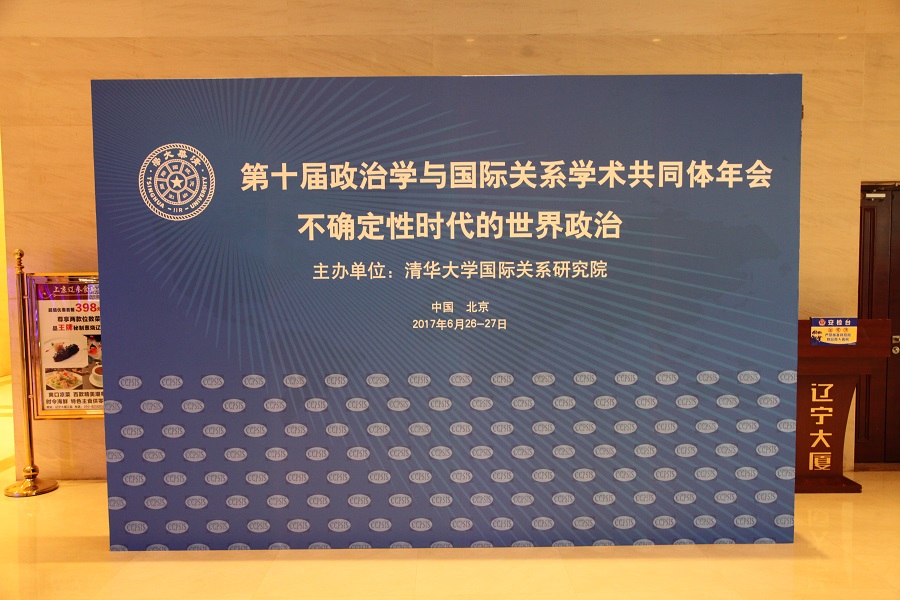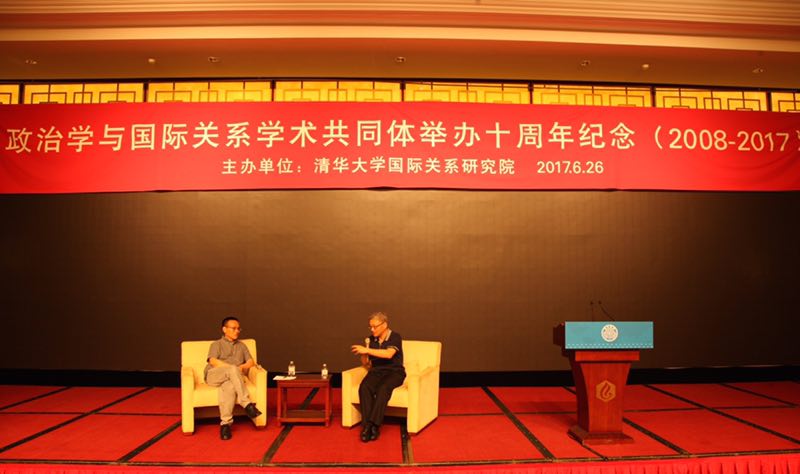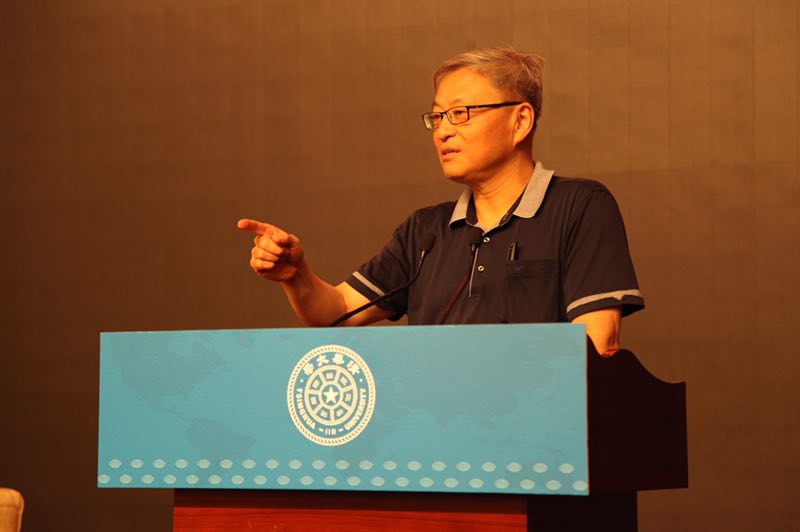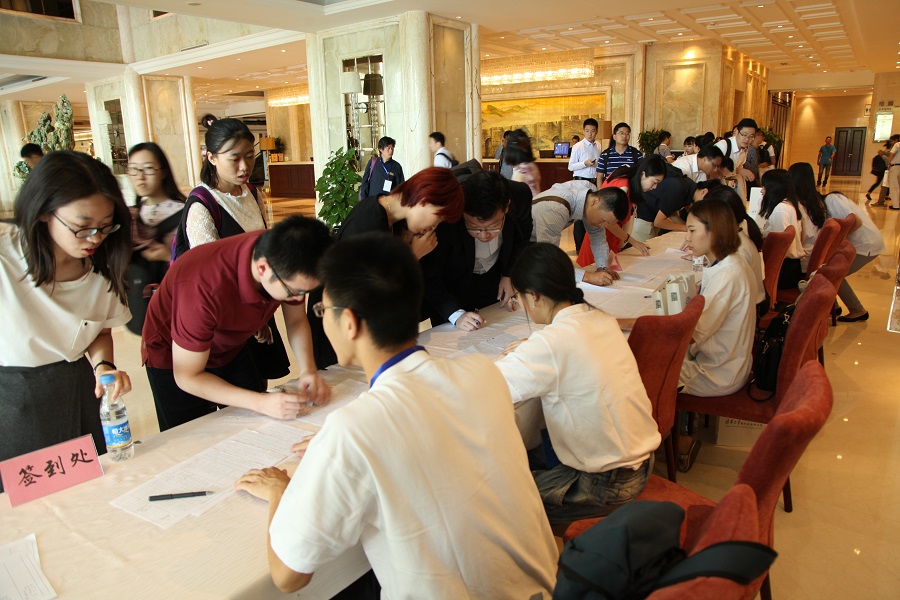On June 26-27, 2017, the 10th meeting of Chinese Community of Political Science and International Studies (CCPSIS), themed World Politics in a Time of Uncertainty, was held in Liaoning International Hotel, Beijing. The Chairman of CCPSIS, Prof. Yan Xuetong attended and addressed the tenth anniversary ceremony. Organized by Institute of International Relations, Tsinghua University, the 2-day meeting attracted more than 700 participants who organized over 82 panel discussions.

2017 marks the 10th anniversary of the CCPSIS and a decennial was celebrated at 6:00 pm on 26th. Prof. Chen Qi, Director of Center for US-China Relations, Tsinghua University, hosted this ceremony. Prof. Yan Xuetong, Dean of Institute of International Relations, Tsinghua University, delivered a speech themed the Rise of China and the Trend in International Relations.

Prof. Yan pointed out that domestic and foreign policy adjustments of the U.S., triggered by newly elected Trump administration, and the rise of anti-establishment movement, mean some new phenomena in world politics, which need to be explained by some innovative political theories. Anti-establishment is not an equivalent of populism, Yan says, and it signifies a political victory of anti-liberal elites. Instead of some kind of divergence between superiority and inferiority among society, this victory symbolizes the unity of anti-liberal elites and public who suffered losses from the globalization, reflecting a kind of reactionary extremism pursued by some liberalist.

Prof. Yan also pointed out that there exist three kinds of misunderstanding of political theory innovation. Firstly, policy review was mistaken as a theory, from which we only extract some political principles. Secondly, dialectic methodology was mistaken as political theory, which is suitable for inquiry above philosophical level, rather than the research in empirical level. Thirdly, coining a new term was mistaken as creating a new theory, by which the process of scientific studies has been inverted and all these so-called "new theories "totally lack positivist foundation and are not consistent with facts.

By looking back on the development of the CCPSIS over the past decade, Prof. Yan analyzed the current complexities of international situations that Chinese scholars must deal with and emphasized the historical mission and academic responsibility for the rise of China that Chinese scholars should take. He encouraged young scholars to aim high enough to transcend the western international relationship schools, especially those dominated by Americans, and to lead the trend of theoretical innovation. At last, Prof. Yan answered some questions from the audience.
In response to a question about the prospect of the CCPSIS in future ten years, Prof. Yan predicted that there would be an increasing influence worldwide as a result of China’s inevitable rise and higher level of Chinese international relationship theories.

